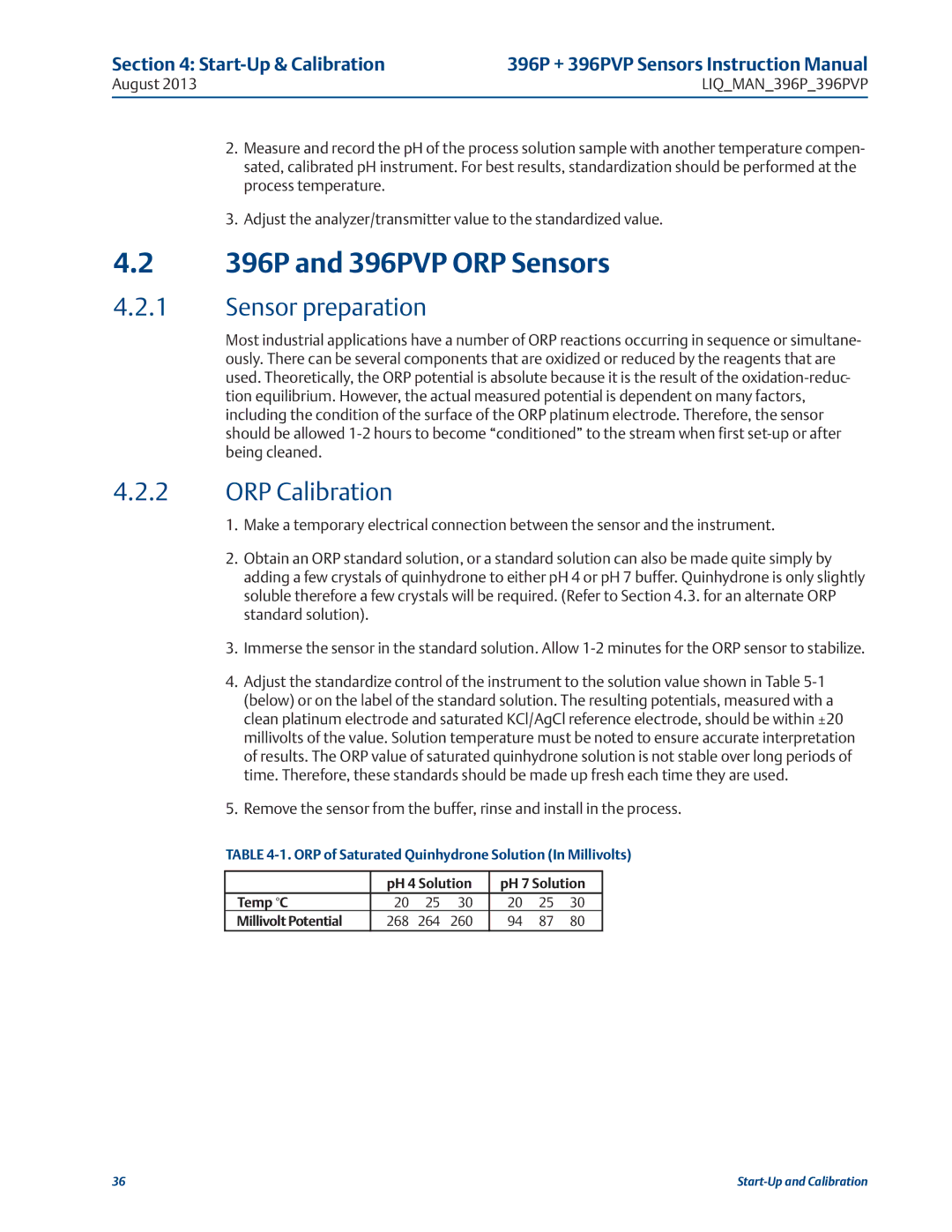Section 4: | 396P + 396PVP Sensors Instruction Manual |
August 2013 | LIQ_MAN_396P_396PVP |
|
|
2.Measure and record the pH of the process solution sample with another temperature compen- sated, calibrated pH instrument. For best results, standardization should be performed at the process temperature.
3.Adjust the analyzer/transmitter value to the standardized value.
4.2396P and 396PVP ORP Sensors
4.2.1Sensor preparation
Most industrial applications have a number of ORP reactions occurring in sequence or simultane- ously. There can be several components that are oxidized or reduced by the reagents that are used. Theoretically, the ORP potential is absolute because it is the result of the
4.2.2ORP Calibration
1.Make a temporary electrical connection between the sensor and the instrument.
2.Obtain an ORP standard solution, or a standard solution can also be made quite simply by adding a few crystals of quinhydrone to either pH 4 or pH 7 buffer. Quinhydrone is only slightly soluble therefore a few crystals will be required. (Refer to Section 4.3. for an alternate ORP standard solution).
3.Immerse the sensor in the standard solution. Allow
4.Adjust the standardize control of the instrument to the solution value shown in Table
5.Remove the sensor from the buffer, rinse and install in the process.
TABLE
| pH 4 Solution | pH 7 Solution | ||||
Temp °C | 20 | 25 | 30 | 20 | 25 | 30 |
Millivolt Potential | 268 | 264 | 260 | 94 | 87 | 80 |
36 |
